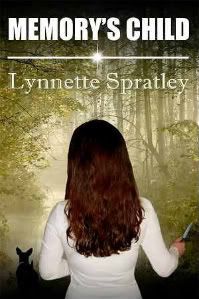Virtually no one can spell my name (one of the many reasons I hate my name).
I am long past being surprised when people spell my name Lynette instead of Lynnette. Spelling the name with only one N is apparently the norm.
I used to consider it a sign of disrespect if someone did not take the trouble to make sure they spelled my name correctly. I still feel that way, just not about my own name. Spell it any way you want and pronounce it any way you want. If you’re close, I’ll answer to it.
The only spoken form I may not answer to is Ly-NEE-tra. Someone actually used that in a voicemail and it took me about a day to realize they were trying to pronounce my name.
Feel free to address me as Lynn, or LynSprat (I use that for a lot of online stuff), or you can use the nickname one of the members of the online writing group I joined back in ’93 – Lynt. Handy little moniker, don’t you think? Easy to pronounce, easy to spell, and best of all, everyone seems to enjoy using it in jokes and puns — Scarlynt when I’m being dramatic, Sadlynt, Happilynt, dryerLynt (I can be a mess sometimes). Anyway, unless you copy and paste it, you’re almost certain to leave out the second N in Lynnette.
In real life, I’ve answered to a wide variety of verbal variations: Lynn, Lynt, Lynnette, Annette, Wynette and, for reasons known only to the person who called me this, Lee. If all I hear is “et,” I’ll answer to it.
WordPress has an option for purchasing lynnettespratley.com to use as a domain name. I was waffling over this, because, as I said, most people can’t spell my name correctly. However, I googled myself with one N and found myself with and without the correct spelling. I’ll probably make the switch to lynnettespratley.com soon. If someone misspells it, Google will offer listings with the correct spelling.
Thank God, I gave my only child a name he wouldn’t have to spend half his life spelling: Chris (Christopher). As problems go, though, easily misspelled or mispronounced names aren’t a big deal over a lifetime.
Still, in my next life, I want to be named Pat. Nobody misspells Pat.




